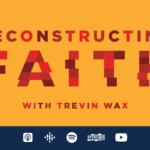You can hear the angst in the voices of many pastors: I don’t know what post-COVID church attendance looks like yet. We thought the worst of the pandemic was over, but then the Delta variant threw a wrench into even the best-made plans for a fall return to regular church attendance. Some church leaders worry about longtime faithful churchgoers who now attend sporadically, if they’ve not checked out altogether.
If we blame the decline in church attendance only on COVID, we fail to consider the cultural conditions that were already in place before the pandemic—an outlook on religious faith that shifts the center of spiritual gravity to the individual and the family, leaving church as something optional.
Last week, I summarized some of the findings in Handing Down the Faith: How Parents Pass Their Religion on to the Next Generation by sociologists Christian Smith and Amy Adamczyk. First, we looked at the importance of parents having regular conversations about religion with their kids in the home throughout the week. Then, we looked at the challenge Christians face in a world where religion is seen in terms of helpfulness, not truthfulness.
Today, we turn our attention to what these developments mean for the faith community. If the home is “home base” for spiritual development, and if most parents believe it’s important for their kids to be religious because they think this will help them out in life, where does this leave the church?
‘Communal Solidarity Project’
For more than a generation now, we’ve been undergoing a massive shift in how we understand the role of religion and the place of church.
The traditional perspective saw religion as a “communal solidarity project.” According to this model, “the way people, institutions, and traditions know what is good is through some combination of revelation and received teachings (tradition), mediated through reason and interpretive commentary.” In the end, religion’s role in society is to be “an authoritative carrier of a tradition” (74).
To put it another way, one seeks to be faithful to an authentic, authoritative core of revealed truth. The goal is to receive the truth and adapt your life to an authentic tradition.
‘Personal Identity Accessory’
In more recent years, religion has moved from being a “communal solidarity project” to what Smith and Adamczyk call a “personal identity accessory” (73). According to this model, the purpose of religion is “not to promote right living grounded in good beliefs, but to offer practices and techniques that promote coping with life and the making of ‘good choices’” (75). The role of religion, then, is not to be “an authoritative carrier of a tradition” but “an optional lifestyle accoutrement.”
In other words, your quest for personal authenticity is at the center, and religion is to adapt in ways that prove helpful to your journey. The focus isn’t on your adherence to an authentic core of revealed truth, but on religion’s helpfulness in your quest to be authentic in your development of personal identity.
Pushing to Periphery
What happens to the church when this model of “personal identity accessory” becomes prevalent? Smith and Adamczyk write:
“Congregations are no longer centers of local community life but rather more like supportive associational resources aiding members in pursuing their authentic life concerns, coping with life, and making good choices” (75).
Other research, even before the pandemic, lays out the results of this change in mindset. Surveys showed the percentage of Americans attending church in decline. Another survey showed that only 35 percent of Americans believe attending worship services constitutes an “essential part of being a Christian.”
(The theologian in me wants to quibble with that word “essential,” because I wouldn’t want to imply that going to church makes you a Christian, or that any person who is not attending church is necessarily lost. But it’s safe to assume most people who answered that survey weren’t analyzing it theologically.)
This means most Christians see church attendance as something optional, something good if it helps you along in your personal spiritual life, but not something commanded, required, or essential to your faith.
Moral Development
Rather than focus only on the weather forecast (the attendance pattern of churchgoers today), it’s important to note the atmospheric conditions and changing winds (how people understand church in the first place). The center of spiritual authority has shifted from the church to the individual and the family. In this environment, the purpose of a religious congregation is to help people discover their personal identity and develop morals to help them through life.
Parents serious about handing down their faith say the main point of churchgoing is “religious education for the kids.” In contrast to kids’ ministry philosophies out there that prioritize pizzazz and entertainment, this research shows that parents who take their kids to Sunday school really want the school part of it emphasized. Most religious parents appreciate the “formal and systematic education” on offer at church (207).
But even here, the point of the congregation is not doctrinal as much as moral. Parents want the church to reinforce the moral teachings their kids get at home.
Post-childhood, the purpose of the church gets murky. Smith and Adamczyk notice the problem:
“One of the (we presume unintended) consequences of parents prioritizing basic morality over, say, continual theological education or lifelong personal growth in the faith is that it ends up defining the most important feature of religion as of primary relevance for children. Religion is ultimately child’s stuff” (209).
With religion as a personal accessory, grownups don’t need the church as much. If religion is primarily about basic moral development, then once you have the tools you need to live, you’re good to go. Few adults seek “the fullness of life shaped by a religious tradition” (210).
Conclusion
My goal in summing up this research hasn’t been to provide a list of easy steps for church leaders, but to provide some context for thoughtful Christians who sense the challenges we’re up against and want to have a stronger understanding of how best to articulate the truth about the church in this environment.
I’ve written before on different ways we can help Christians recapture a stronger and more durable commitment to congregational worship. Several new books seek to point us back to the centrality of the church in the purposes of God. We will need all these resources (and more) at our disposal if we are to be faithful as God’s people in this time.
If you would like my future articles sent to your email, as well as a curated list of books, podcasts, and helpful links I find online, enter your address.

















